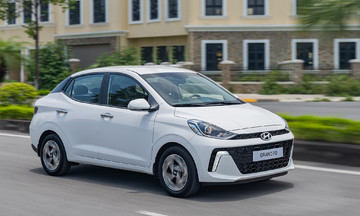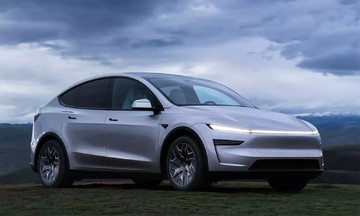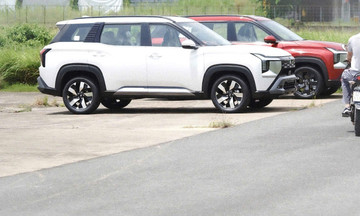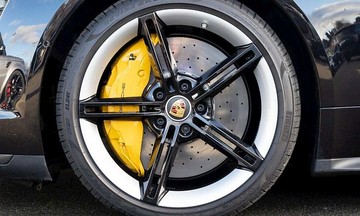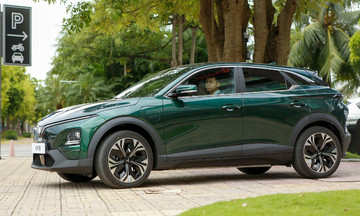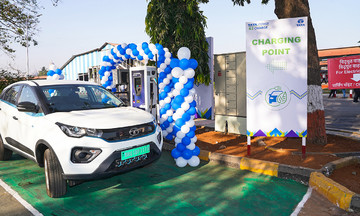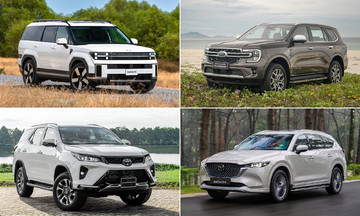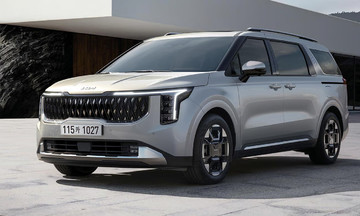Located in the Sipcot Industrial Park, Thoothukudi city, Tamil Nadu state, the plant marks a new step for the Vietnamese automaker in its global expansion. According to Vinfast, the total investment is 2 billion USD, with the first phase costing 1.5 million USD.
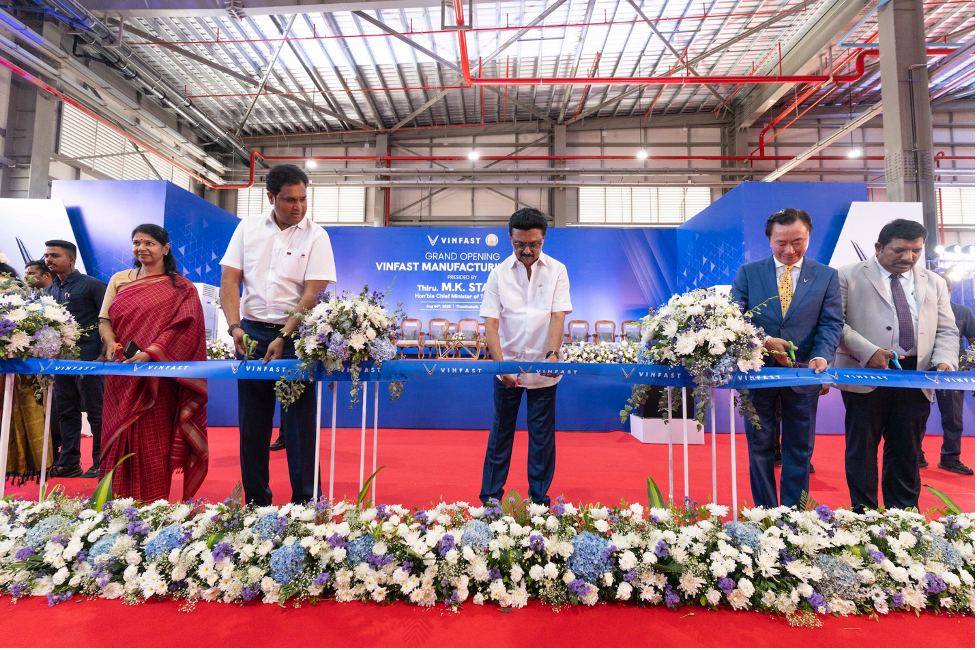 |
Tamil Nadu Chief Minister M.K. Stalin (third from right) and Vinfast Asia CEO Pham Sanh Chau (second from right) cut the ribbon at the opening ceremony of the Vinfast plant in India. Photo: Vinfast |
Tamil Nadu Chief Minister M.K. Stalin (third from right) and Vinfast Asia CEO Pham Sanh Chau (second from right) cut the ribbon at the opening ceremony of the Vinfast plant in India. Photo: Vinfast
Vinfast stated the Tamil Nadu facility covers 160 hectares and features internationally standardized production lines with a high degree of automation and advanced technologies. These include body welding, painting, assembly, quality inspection, and logistics warehouses. The project also includes a support area for local contractors, with plans for expansion in the coming years.
Initially, Vinfast will assemble the VF 7 and VF 6 electric vehicle models, with a capacity of 50,000 vehicles per year, potentially reaching 150,000 units if market demand increases. This is a crucial step towards achieving the sales target of 200,000 vehicles this year and the production target of 1 million vehicles by 2030.
The Vinfast Tamil Nadu plant is expected to create jobs for 3,000 to 3,500 local workers, along with thousands of indirect jobs within the supply ecosystem. Pham Sanh Chau, CEO of Vinfast Asia, said the new plant demonstrates the company's commitment to long-term engagement in the Indian market, establishing a foundation for sustainable growth.
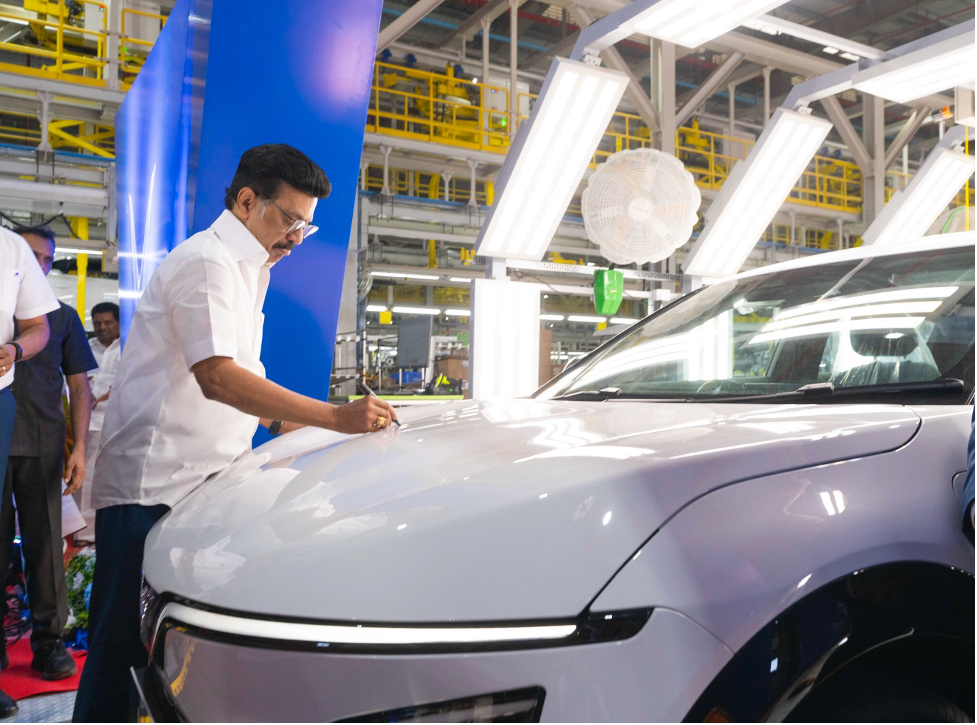 |
M.K. Stalin signs the first electric vehicle produced by Vinfast in Tamil Nadu, India. Photo: Vinfast |
M.K. Stalin signs the first electric vehicle produced by Vinfast in Tamil Nadu, India. Photo: Vinfast
"The Vinfast Tamil Nadu factory will provide Indian consumers with access to high-quality, competitively priced electric vehicles," Chau said, adding that the company aims to develop the facility into Vinfast's largest export hub for South Asia, the Middle East, and Africa. "We have already received initial orders from several countries in these regions. Vinfast is working to establish this location as the electric vehicle capital of South Asia, serving the domestic market and expanding regionally."
In addition to expanding its global production capacity, Vinfast hopes the plant will contribute to India's green industrial development goals. The Vietnamese automaker prioritizes collaborating with domestic suppliers, promoting the localization of the supply chain, transferring technology, and enhancing the skills of the local workforce.
Since entering the Indian market earlier this year, the Vietnamese electric vehicle manufacturer has aimed to build a comprehensive electric vehicle ecosystem, encompassing assembly, distribution, after-sales service, and recycling.
Vinfast has previously partnered with several distribution dealers and established a digital technical service and after-sales care system. In the recycling sector, the company has collaborated with BatX Energies to recover and reuse batteries, moving towards a circular production model.
Quang Anh



